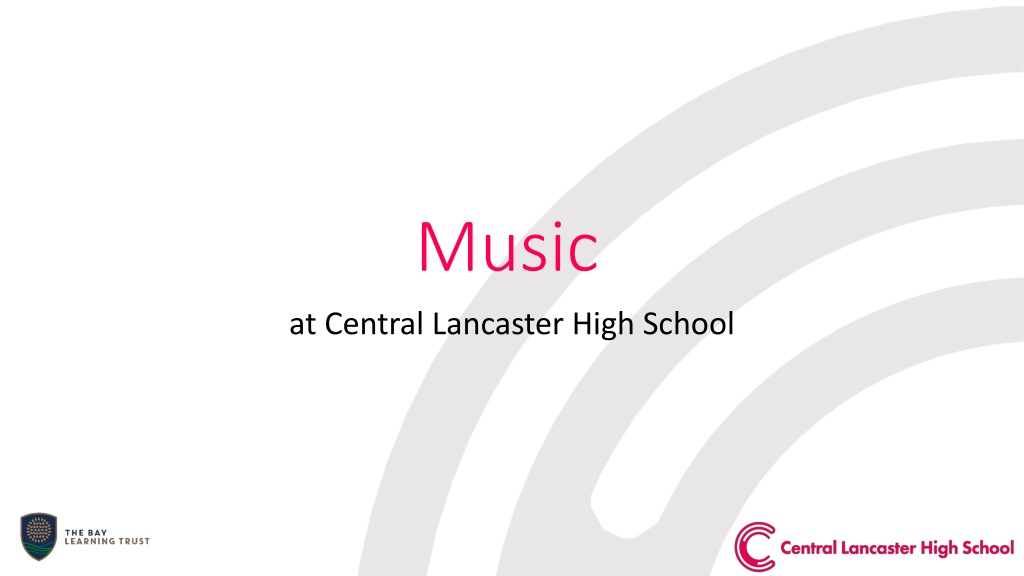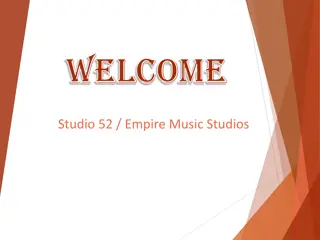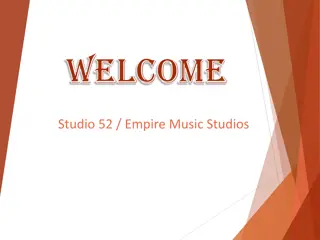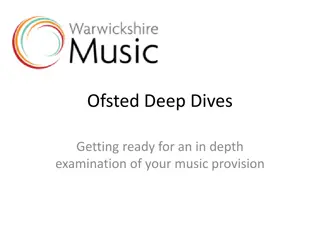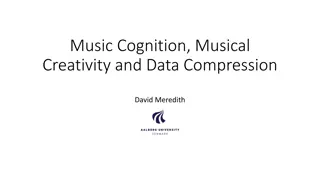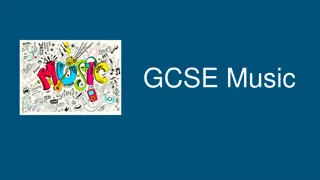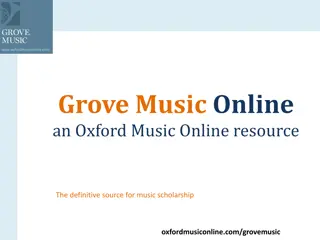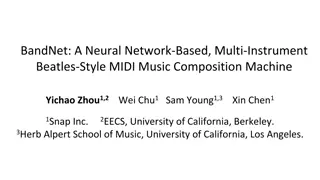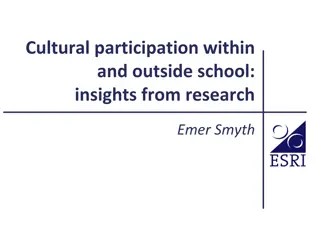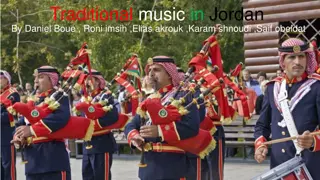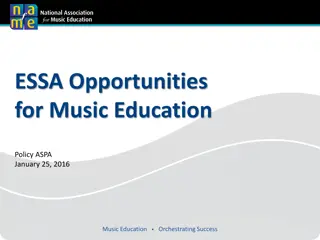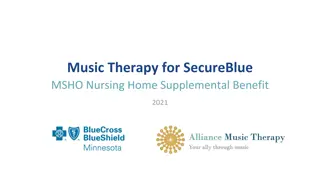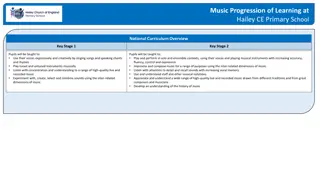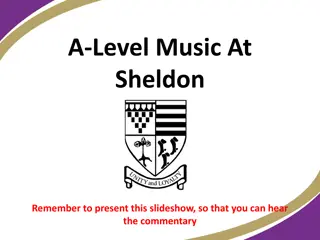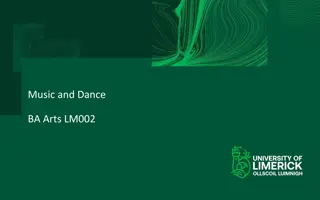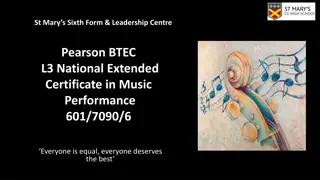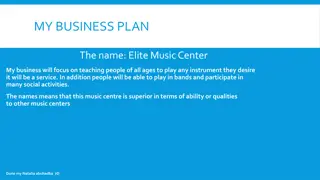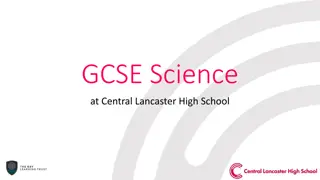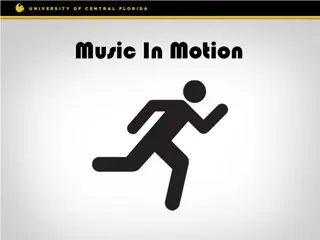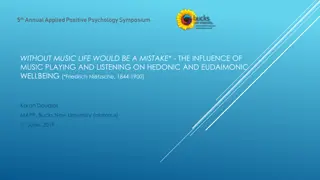Explore Music Education at Central Lancaster High School
Discover the benefits of choosing music as a subject, the components and assessment structure of the music course, the skills you will develop, and the pathways for post-16 and post-18 studies in music. Gain insights into the enrichment music education can offer in terms of enjoyment, skill development, and unique learning experiences.
Download Presentation

Please find below an Image/Link to download the presentation.
The content on the website is provided AS IS for your information and personal use only. It may not be sold, licensed, or shared on other websites without obtaining consent from the author. Download presentation by click this link. If you encounter any issues during the download, it is possible that the publisher has removed the file from their server.
E N D
Presentation Transcript
Music at Central Lancaster High School
Why should I choose music? Enjoyment of music Developing instrumental skills Develop skills for employment Completely different to core subjects 60% coursework
What does the course involve? The course is examined by Eduqas and is made up of 3 components: Component 1 Performing music (30% of the overall GCSE. 2 performances 1 solo & 1 ensemble) Component 2 Composing music (30% of the overall GCSE, 2 compositions) Component 3 Appraising (40% of the overall GCSE, one final exam)
How is the work assessed? Components 1 and 2 are assessed through non-exam internal coursework. Component 3 externally assessed (listening exam)
Internally assessed units Component 1 Performing Component 2 - Composition 2 compositions 1 free choice year 10 1 set by the exam board 4 choices, year 11 Between 3 6 minutes long (combined) 30% of GCSE Any instrument including rapping, beatboxing and Djing. One solo performance One ensemble performance Recorded through the year Audio only Between 3 6 minutes long 30% of GCSE
Component 3 Listening and appraising 4 areas of study: AOS 1 Music from the Western classical tradition 1650 1910 set work - J S Bach Badinerie . AOS 2 Music for ensemble Chamber music, Jazz and Blues music, Musical Theatre. AOS 3 Film music Soundtracks and sfx AOS 4 Popular music Pop, Rock, Bhangra, Fusion. Set work Toto Africa .
What skills will I develop? Employers and universities are increasingly looking for well-rounded people who have academic and practical skills combined with real- world knowledge: Communication Confidence Organisation Independent learning Problem solving Research Self-discipline Time management
Pathways for post-16 study Pupils can go onto a number of the local 6thform providers to study A Level Music and associated subjects Alternatively local colleges offer full-time study in performing arts and music at level 2 and 3. Post-18 students can progress to a wide range of degrees in the music at universities both nationally or internationally, or, they may choose to pursue an apprenticeship or go into employment.
For more information about the course, please speak to your child s music teacher at progress evening on Thursday 14 March 2024.
